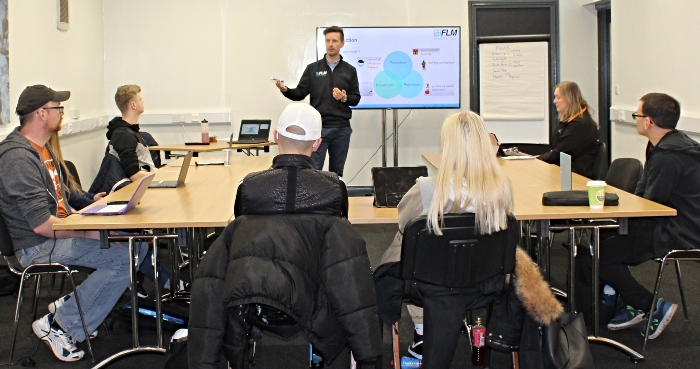
In communities across the UK, local schools and grassroots clubs play a vital role in shaping young minds—not just academically but socially and emotionally as well.
These environments are where children and teens begin to form their identities, develop confidence, and learn values like teamwork, dedication, and resilience.
But what happens when these institutions are supported by the insights and experiences of those who’ve performed on the national stage?
Bringing in mentorship from national-level athletes, coaches, and leaders can be transformative.
It bridges the gap between aspiration and reality, inspiring young people and giving educators fresh tools to foster growth.
Here’s how national-level mentorship is strengthening local efforts across the UK.
1. Making Role Models Real
For many young people, top athletes and leaders can seem like distant, almost mythical figures.
But when these individuals engage directly with local schools and clubs, it makes success feel tangible.
Hearing firsthand about the dedication, setbacks, and mindset required to compete at the highest level makes a lasting impression—especially when it comes from someone relatable and down-to-earth.
Mentors like Helen Richardson-Walsh, a gold medal-winning Olympian, offer more than just inspiration.
They bring a human story of hard work, self-belief, and perseverance that resonates with students, staff, and coaches alike.
Her journey is one that many students can connect with, particularly those who may be unsure of their path or facing challenges in their personal development.
2. Boosting Confidence and Ambition
Exposure to high-performing mentors helps young people set bigger goals.
When a national-level figure says, “I started just like you,” it changes the narrative.
Suddenly, a child from a small town believes they can achieve something greater—whether in sport, academics, or beyond.
Mentorship also supports the development of a growth mindset. Instead of seeing talent as fixed, students learn that improvement is always possible with effort, feedback, and practice.
This message, delivered by someone who has lived it, can reshape how young people view their potential.
3. Supporting Staff and Coaches
It’s not just the students who benefit. Teachers and club coaches gain valuable insights from elite mentors as well.
These professionals often juggle multiple roles and responsibilities, and fresh ideas from outside their immediate environment can reinvigorate their approach.
Learning about leadership, team dynamics, and mental health from experienced figures brings new strategies into the classroom and onto the pitch.
Mentors can also help schools and clubs align their ethos with the wider sporting and educational landscape, making sure they’re not just reacting, but innovating and growing.
4. Encouraging Inclusive and Diverse Cultures
National-level mentors are often champions for inclusivity, mental health, and diversity—topics that are more important than ever in UK schools and clubs.
Their stories help promote safe spaces for every child to express themselves, try new things, and pursue success in their own way.
By working with mentors who have navigated their own identities, challenges, or setbacks, schools can reinforce messages of respect and belonging. This creates stronger, more connected communities.
5. Opening Doors to New Opportunities
Sometimes, mentorship is the spark that leads to real change. It might be the start of a school’s new wellbeing initiative, the formation of a girls’ football team, or an expanded PE programme that prioritises inclusion.
With support from national figures, local efforts often gain momentum, attract funding, and become sustainable projects.
Mentorship can also lead to ongoing partnerships—bringing in talks, workshops, training sessions, and even digital resources that keep the learning going long after the first visit.
A Stronger Future, One Connection at a Time
When national-level mentors invest in grassroots settings, they plant seeds that grow far beyond sport.
They support confidence, ambition, resilience, and compassion—qualities that prepare young people not just for games and exams, but for life.
By welcoming experienced voices into local schools and clubs, we’re not just passing on tips—we’re shaping mindsets, expanding horizons, and building a stronger, more united future across the UK.
(Stock image for display purposes only)


















Recent Comments